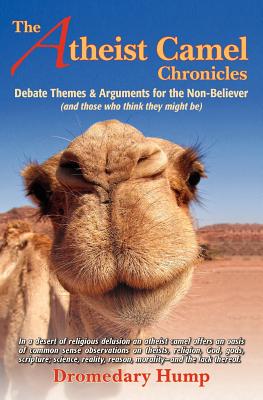
Recently, a blogger who I respect and who’s opinion I value, said that even if Osama were Muslim it wouldn’t stop him from voting for him. While I respect his position, I don’t share that philosophy. I could not vote for a Muslim, any more than I could vote for a Xtian Fundie, a devotee of Voodoo, a Satanist, a Scientologist, or any other belief system outside the mainstream-moderate-culturally acceptable - middle of the road- Judeo-Christian, or atheist candidate.
Putting aside the admittedly emotional elements surrounding Muslims, it reminds me of the statement often fronted by Christian Fundies in defense of their most theistically infected standard bearers: "A person’s religious belief has no effect on their competence of holding that office".
Putting aside the admittedly emotional elements surrounding Muslims, it reminds me of the statement often fronted by Christian Fundies in defense of their most theistically infected standard bearers: "A person’s religious belief has no effect on their competence of holding that office".
Since atheism isn’t a belief / belief system, that statement is antithetical to an atheist candidate (not that there are any admitted atheist candidates). Certainly any political or social or ethical belief an atheist holds is open to scrutiny as to suitability to govern, but not his atheism, since it is not a belief, it’s simply a lack of belief.
An atheist candidate would have no supernaturally driven agenda. There could be no split allegiance between upholding the laws of man (Common Law / the Constitution), and some "Higher Moral Authority" handed down by some fictional divine being or prophet. There is only The Law… and evolved human ethics and culturally accepted morality. Unlike theists, there is no conflict of allegiance in the atheist mind, and no chance of decision making being based on prophesy or bizarre doctrine that welcomes or hastens Armageddon, or that may offend the sensibilities of a mythical supreme being, or that is “interpreted” as having been God Sent.
Thus, where no Constitutional prohibition exists for government to interfere with scientific advancement (i.e. stem cell research); or medical advancements (i.e. the distribution of the Human Papaloma Virus preventative vaccine, or over the counter sale of morning after contraceptives), then there is no lawful nor logical reason to impede those things which contribute to the common good and improve the human condition.
Where the Constitution has never been interpreted to impede the right of the terminally ill to die a dignified death and end ones interminable suffering, or to prevent people of the same sex from being recognized as married, then the governing atheist's position would be unencumbered by some nonsensical question of "What Would Jesus Do?", or "What did the bronze age writers of the Old Testament have to say on the matter." , or "Lets consult the Koran."
While in their fevered and imbalanced minds, theists might perceive atheists as a threat to the free practice of their religion, such an opinion has no evidentiary support. It would be in direct contradiction to the Constitutional guarantees of the 1st Amendment to which any American atheist would subscribe.
I hold that any supernatural / mythical belief held by a candidate potentially puts that candidate in conflict with governing in accordance with the law, reason and good sense. My position is simple: All other qualifications being equal, in lieu of a atheist, the less religious, and the more main stream / liberal the religious flavor of the candidate the better off we all are.

























No comments:
Post a Comment